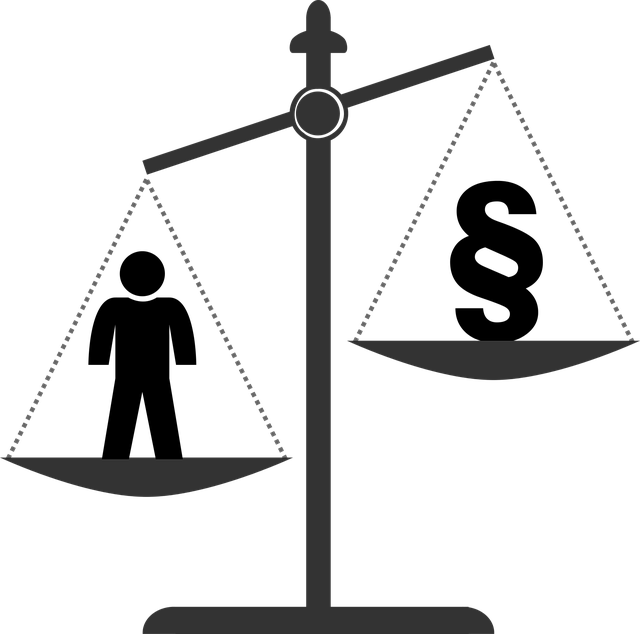A contract breach occurs when one party fails to meet agreed-upon obligations, leading to immediate action being crucial. This involves clear communication with the breaching party, documenting issues, and understanding legal implications which can include civil lawsuits, damages, or even criminal charges. After a breach, gather comprehensive evidence like emails, contracts, and witness statements to support your case. Based on severity, options range from demanding performance or compensation to legal proceedings, potentially involving law enforcement for serious breaches to ensure accountability.
“In the realm of criminal law enforcement, understanding contract breaches is paramount, as these incidents can trigger legal implications that extend far beyond civil disputes. This article guides you through a comprehensive roadmap, focusing on ‘Steps to Take After Contract Breach.’ From recognizing immediate red flags to implementing effective enforcement strategies, we delve into essential practices. Learn how to document evidence, navigate legal remedies, and ensure justice in cases involving contract violations.”
- Understanding Contract Breach: What It Entails and Legal Implications
- Immediate Steps After Discovering a Contract Breach
- Documenting the Breach: Evidence and Record-Keeping
- Legal Remedies and Enforcement Strategies for Contract Breach Cases
Understanding Contract Breach: What It Entails and Legal Implications
A contract breach occurs when one party fails to fulfill their obligations as outlined in a legal agreement. This can take various forms, from non-payment to failure to deliver goods or services as promised. Understanding what constitutes a breach is crucial for both parties involved. If you suspect a contract breach, the first step is to achieve extraordinary results through clear and documented communication with the breaching party. This may involve negotiating a resolution or seeking legal advice from a general criminal defense attorney.
Knowing the legal implications of a contract breach is essential. Depending on the severity and nature of the breach, it could lead to civil lawsuits, financial damages, or even criminal charges. Throughout all stages of the investigative and enforcement process, maintaining detailed records and seeking professional guidance can help protect your rights and interests.
Immediate Steps After Discovering a Contract Breach
Upon discovering a contract breach, the immediate reaction is crucial to protect one’s rights and interests. The first step is to gather all relevant information and evidence related to the breach. This includes reviewing the contract thoroughly, identifying the specific clauses that have been violated, and documenting any damages or losses incurred as a result. It’s essential to act swiftly; time is of the essence in legal matters, especially when pursuing remedies for breach of contract.
The next course of action involves assessing the severity of the breach. Depending on the nature and extent, options range from sending a formal notice demanding performance or compensation to initiating legal proceedings. Consulting with a legal professional who specializes in contract law is vital for navigating these steps effectively. They can guide for his clients through the complexities, ensuring that any actions taken align with the respective business’s best interests and considering the broader impact on the philanthropic and political communities.
Documenting the Breach: Evidence and Record-Keeping
When a contract breach occurs, meticulous documentation is paramount. The first step is to gather all relevant evidence, such as emails, contracts, and witness statements, that can prove the violation. This process involves systematically collecting and organizing these materials to create a comprehensive record of the breach.
Effective record-keeping plays a crucial role in navigating high-stakes cases, especially during all stages of the investigative and enforcement process. It helps to avoid indictment by providing clear evidence of the breach, enabling legal teams to present a strong case for resolution. This meticulous approach ensures that every detail is considered, minimizing potential legal complications down the line.
Legal Remedies and Enforcement Strategies for Contract Breach Cases
When facing a contract breach, understanding legal remedies is paramount. The first step after discovering a breach is to gather evidence and document the details thoroughly. This includes any communication or correspondence related to the agreement. Once this is done, the affected party can decide on their course of action. They may choose to send a formal notice demanding performance or compensation for damages incurred due to the breach.
Enforcement strategies vary depending on the severity of the breach and the type of contract. For minor breaches, negotiation and mediation could be effective in reaching a mutually agreeable solution. However, more significant breaches might require legal action, such as filing a lawsuit in civil court. In cases involving white-collar or economic crimes, law enforcement agencies may become involved, aiming to avoid indictment while also holding the offender accountable within philanthropic and political communities.
In conclusion, navigating a contract breach requires immediate action. Understanding the legal implications and available remedies is crucial. After discovering a breach, it’s essential to document evidence thoroughly and keep accurate records. By taking these steps—from assessing the situation to enforcing legal strategies—you can effectively manage contract breaches, protect your rights, and ensure fair resolutions in criminal law enforcement cases. Remember that prompt action and proper record-keeping are key to a successful outcome when dealing with contract violations.






